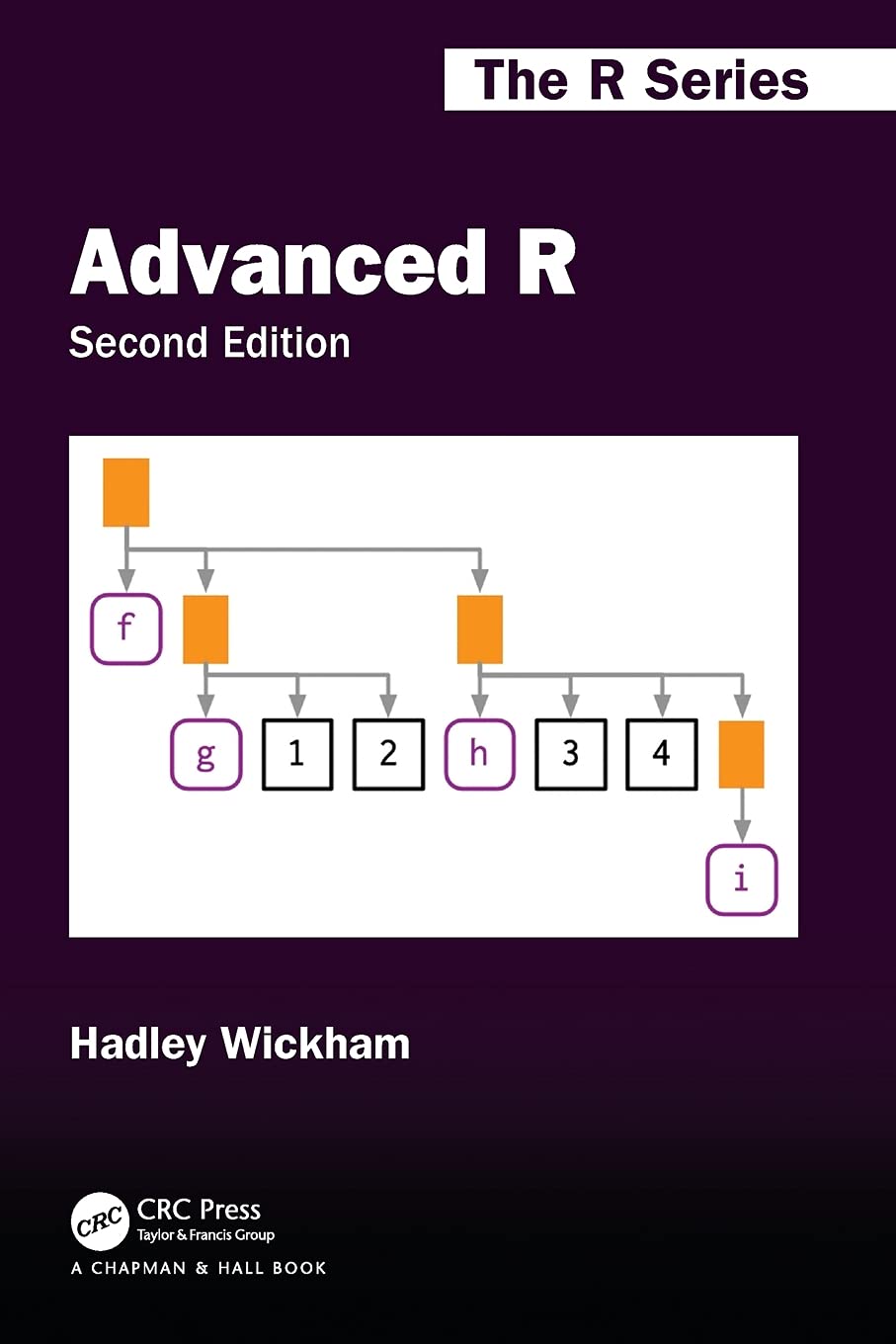

Most ebook files are in PDF format, so you can easily read them using various software such as Foxit Reader or directly on the Google Chrome browser.
Some ebook files are released by publishers in other formats such as .awz, .mobi, .epub, .fb2, etc. You may need to install specific software to read these formats on mobile/PC, such as Calibre.
Please read the tutorial at this link. https://ebooknice.com/page/post?id=faq
We offer FREE conversion to the popular formats you request; however, this may take some time. Therefore, right after payment, please email us, and we will try to provide the service as quickly as possible.
For some exceptional file formats or broken links (if any), please refrain from opening any disputes. Instead, email us first, and we will try to assist within a maximum of 6 hours.
EbookNice Team

Status:
Available4.6
11 reviewsAdvanced R helps you understand how R works at a fundamental level. It is designed for R programmers who want to deepen their understanding of the language, and programmers experienced in other languages who want to understand what makes R different and special. This book will teach you the foundations of R; three fundamental programming paradigms (functional, object-oriented, and metaprogramming); and powerful techniques for debugging and optimising your code.
By reading this book, you will learn:
The difference between an object and its name, and why the distinction is important
The important vector data structures, how they fit together, and how you can pull them apart using subsetting
The fine details of functions and environments
The condition system, which powers messages, warnings, and errors
The powerful functional programming paradigm, which can replace many for loops
The three most important OO systems: S3, S4, and R6
The tidy eval toolkit for metaprogramming, which allows you to manipulate code and control evaluation
Effective debugging techniques that you can deploy, regardless of how your code is run
How to find and remove performance bottlenecks
The second edition is a comprehensive update:
New foundational chapters: "Names and values," "Control flow," and "Conditions"
Comprehensive coverage of object-oriented programming with chapters on S3, S4, R6, and how to choose between them
Much deeper coverage of metaprogramming, including the new tidy evaluation framework
Use of new package like rlang (http: //rlang.r-lib.org), which provides a clean interface to low-level operations, and purr (http: //purrr.tidyverse.org/) for functional programming
Use of colour in code chunks and figures
Hadley Wickham is Chief Scientist at RStudio, an Adjunct Professor at Stanford University and the University of Auckland, and a member of the R Foundation. He is the lead developer of the tidyverse, a collection of R packages, including ggplot2 and dplyr, designed to support data science. He is also the author of R for Data Science (with Garrett Grolemund), R Packages, and ggplot2: Elegant Graphics for Data Analysis.